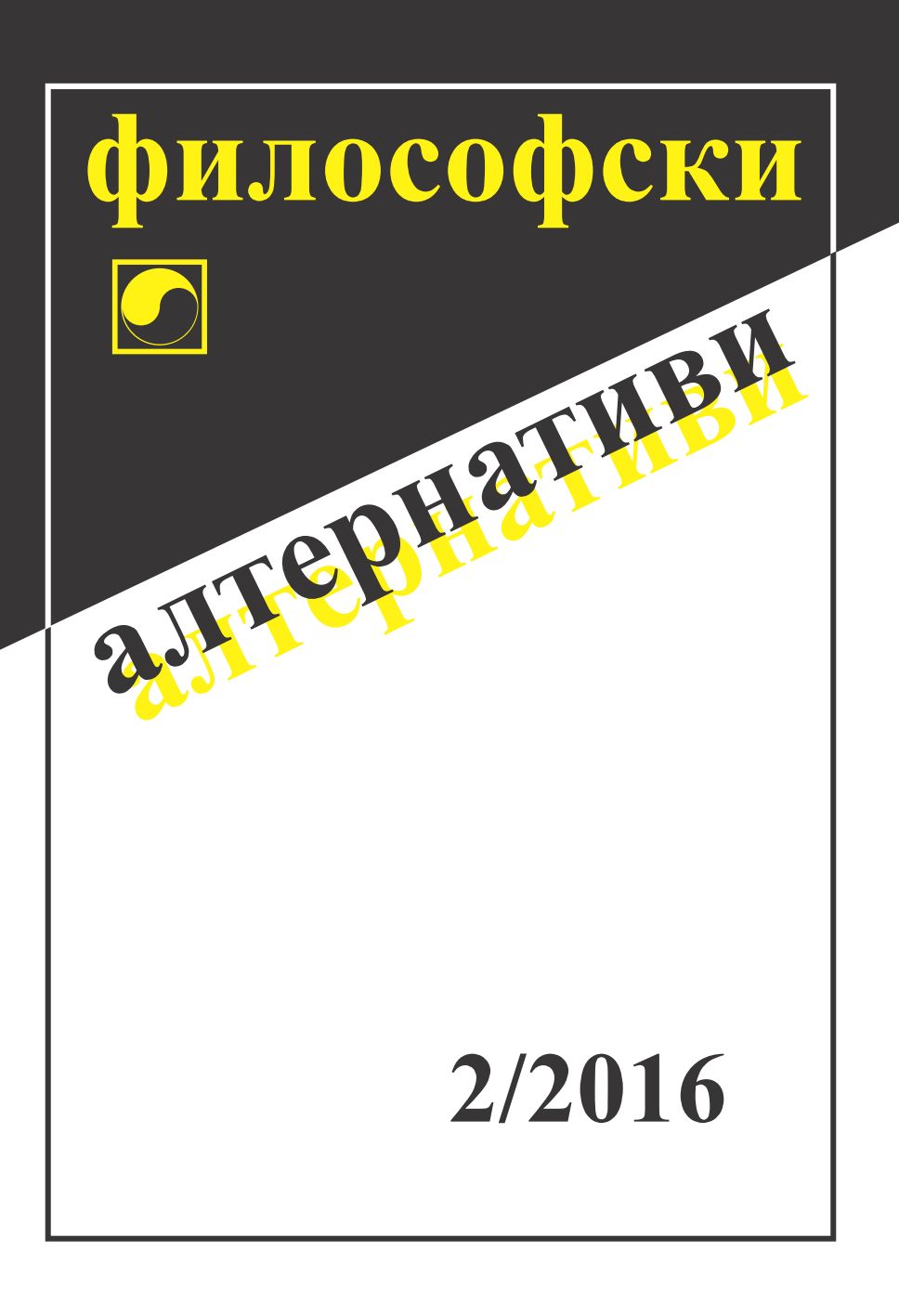
We kindly inform you that, as long as the subject affiliation of our 300.000+ articles is in progress, you might get unsufficient or no results on your third level or second level search. In this case, please broaden your search criteria.

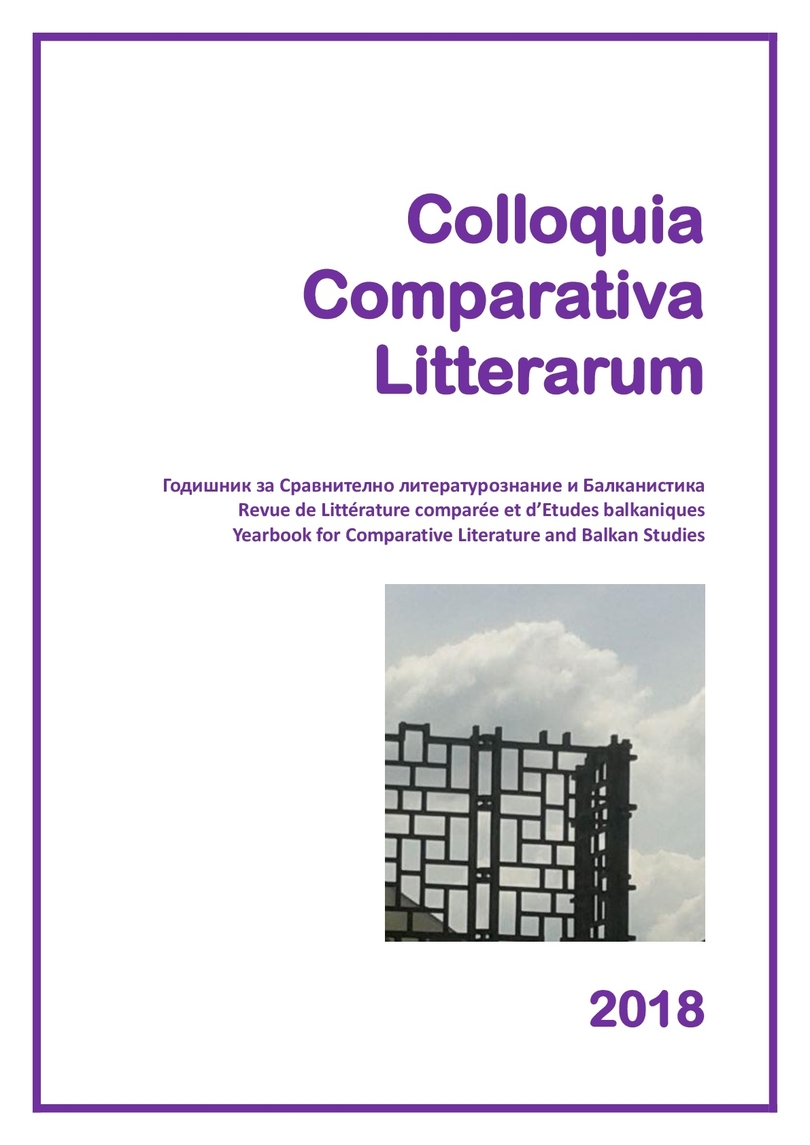
The paper examines Petko Todorov’s five symbolist plays (Masons, Strahil the Redoubtable Haidout, The Fairy, Bride Boryana, and Dragon’s Wedding) from the perspective of European symbolist drama to emphasize their common aesthetic principles and their specific originality. The comparative analysis thus defined leads to the conclusion that Petko Todorov’s works follows the structural principles of Symbolist drama yet they have their own specifics. The unconventional structure of the dramatic action and dialogue; the wide use of music and painting in the staging of the plays as well as their new genre form make Todorov’s works akin to the francophone Symbolist model. On the other hand, the moral dimension and the pervading national atmosphere in the Bulgarian dramas betray their indebtedness to the Russian Symbolist drama. Finally, the de-valorisation of the fantastic characters and the playing down of Romantic and realistic elements in Petko Todorov’s dramas are totally unknown to the European Symbolist theatre. In this way, Petko Todorov’s dramas are a peculiar combination of Symbolist poetics and influences of the Bulgarian national context. They follow their own development and contribute hereby to the specific evolution of the Bulgarian modernist theatre.
More...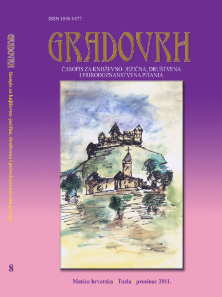
Etiketama za obraćanje, ponegdje nazvanim i etiketama za oslovljavanje (Vasić, 1979: 58), smatraju se nazivi za titule, zvanja, profesije, društvene funkcije, činove itd. (Radovanović, 1986: 140), a pojedini, iako ne svi lingvisti, pridružuju im i etikete za obraćanje srodnicima, prijateljima i poznanicima (Vasić, 1979: 62). Smatra se da se ove etikete od ostalih jezičkih sredstava za obraćanje razlikuju relativnom semantičkom markiranosti (Vasić, 1979: 59), a tvrdnja se dokazuje upotrebom etikete mama, kojom je jasno ispoljen odnos solidarnosti, “jer ga već sama etiketa nosi u sebi kao posledicu postojanja srodničkog odnosa” (Vasić, 1979: 59). Osim toga, njima se dodaju i lekseme drug, drugarica, gospodin, gospođa, gospođica i sl. uz eventualnu upotrebu titule. U analizi etiketa za obraćanje neizbježan je osvrt na upotrebu zamjenica 2. lica. No, to nipošto nije nedostatak, nego faktor koji doprinosi boljem osvjetljavanju analiziranog problema.
More...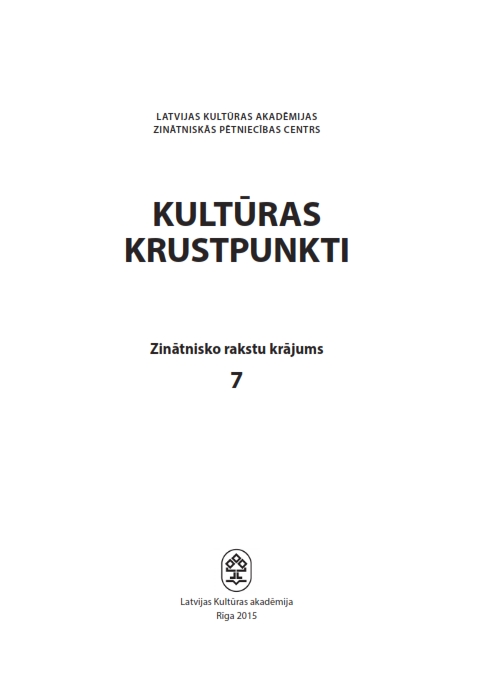
The article offers a brief insight into theatrical productions of Shakespeare’s plays in Latvia, focusing on the tragedy “Hamlet”. The article also analyses four theatrical productions of William Shakespeare’s plays by Oļģerts Kroders during the Soviet times: “Romeo and Juliet” (1966), “A Tragic Story of Hamlet, Prince of Denmark” (1972), “The Winter’s Tale” (1980), and “Hamlet, Prince of Denmark” (1984). The theatrical productions of these plays demonstrate the influence of the world theatre processes on Kroders’s creative handwriting. The article is an attempt to find a connection between the director’s conception and the social situation of the historical period when the play was staged in Latvia. The materials used for the article include the reviews of every theatrical production in the press, two observations of the rehearsal process (1980–1984), the explications of the director in the copies of the text of the play and in his private archive, and the ideas Kroders expressed in my interviews in 2011 and 2012. When interpreting translations of Shakespeare’s works, Kroders has remarkably solved not only linguistic and cultural differences which are characteristic of translated texts; he has also ideologically blended the two different epochs, addressing topical themes for the audience of Shakespeare’s day, without vulgarising or impoverishing the multilayered message of the original.
More...
The rise of an original Indian detective novel can be dated back to the 1950s. Like its European predecessor, the genre was initially considered strictly popular; books were sold at railway stations as cheap reading matter for commuters. During the Sixties, however, thanks to the rising importance of the middle class, detective novels became increasingly popular. For years the detective genre had been on the wane and it was only in the first decade of the 21st century that new detective and noir stories appeared.
More...
Purpose of Article. The purpose of the work is to find the generalizing features and trends of the appeal of the Chinese drama (spoken) theatre to the works of classics of the world drama - W. Shakespeare, H. Ibsen, A. Chekhov in the status of objects of artistic reception, as well as to find their alterations in the concrete and historical context of cultural life and society. To generalize the reasons for expanding the circle of authors of world literature and outstanding playwrights for a more reliable and full coverage of the influence on Chinese drama and "spoken" theatre. Methodology. The methodology of research, first of all, lies in applying comparative and historical-logical methods. The given methodological approach allows us to disclose and analyze the certain patterns of applying ideas and images of Russian and Western literature about the ideological models of Chinese society in specific historical conditions; these models being close to the relevant plot motives and ideological sources of a certain period. Scientific Novelty of the work is to expand the notion of the influence of classical world drama on the repertoire and the means of interpreting the plays by the new theatrical troupes of China. In particular, the differences between the "spoken" theatre and the "Beijing Opera," as well as the ways of the formation of the national theatre, considering the influence European dramaturgy - from Shakespeare to Chekhov. Conclusions. It is important for perception problems of a translated text of the work of art in a different cultural environment, that receptive aesthetics accentuates the question of historicism and social principles of this interpretation - in literature and drama, and in the theatrical culture in general. It is proved that in the mentioned period of time there was a transition in Chinese drama from the legends of xi qu theatre to the real life of a man. That is, Chinese playwrights have learned from the classics to create true, viable models of plays, to combine drama and lyricism together, to create new types of characters, a special genre of "lyrico-psychological drama." At the beginning of the XX century, the educated youth refused to adopt the norms of behavior determined by Confucian ethics; the adherence to well-doing, the external standards of decency and the family farm management were gradually becoming obsolete. This circumstance can be vividly illustrated by the reaction caused by the play "A Doll's House" by Henrik Ibsen when the female movement in China began to be called "Noraism" after Nora - the protagonist of this play.
More...

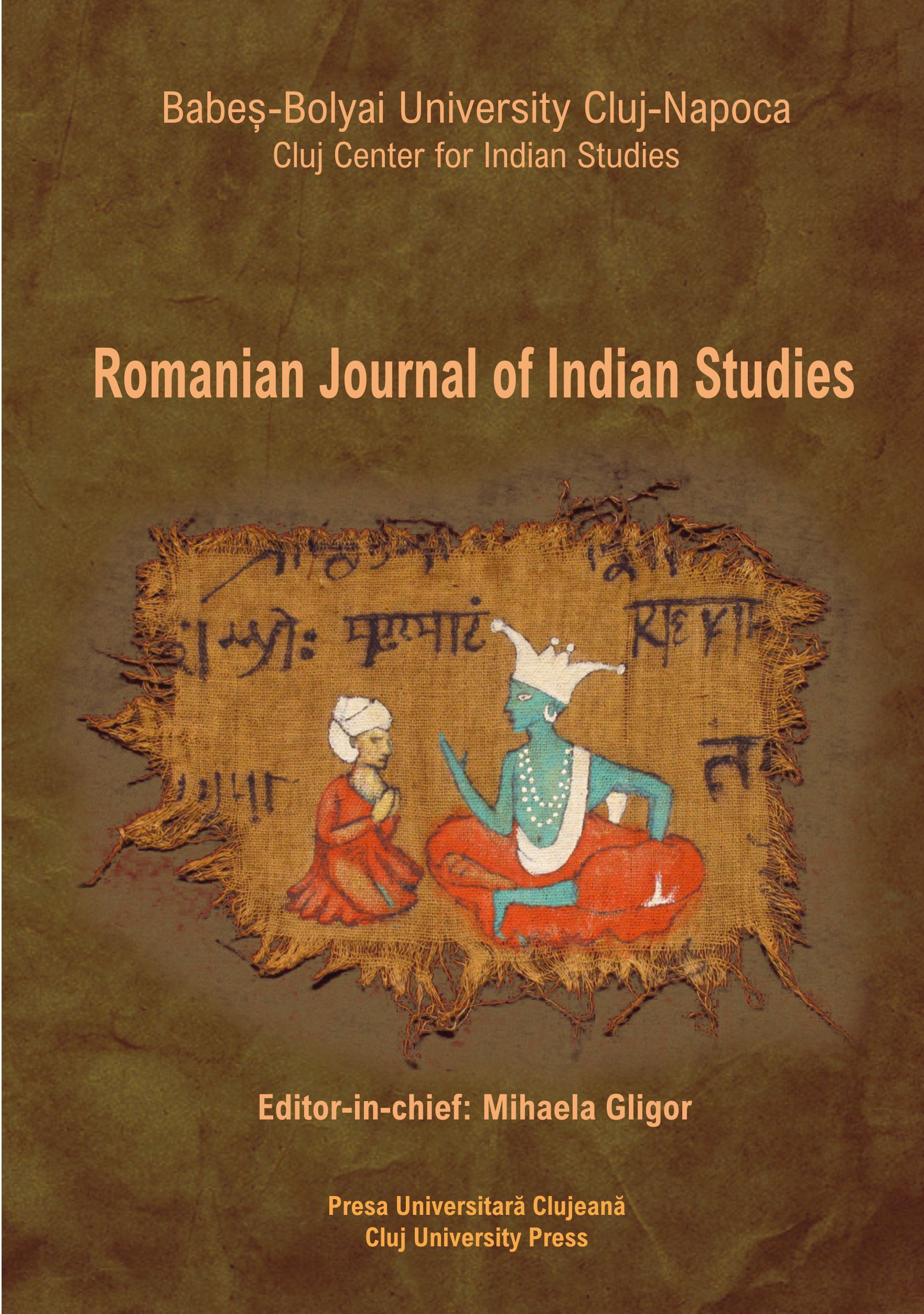
In this paper, I tried to make a presentation about the origin, growth and decline of the institution of temple girls. Devadasis were women who were dedicated to the particular temple deity or any specific symbol. A devadasi was considered nitya sumangali, a woman eternally free from the adversity of widowhood as she was married to God and married forever. She was married to a deity or god, but that did not mean that she had to live her life without the normal pleasures of sex and childbearing. In medieval times, she was a respected member of the society. These devadasis were performed ritualistic and non-ritualistic performances until 17th century, when devadasis were moving away from the temples into the secular spaces. Now they were no longer confined to the temples and by 18th century, the distinction between the devadasi and the prostitute becomes blurred. The bibliography to which I had access clearly shows a transformation of the role of the system in Hindu society, a role that I tried to capture in the following pages.
More...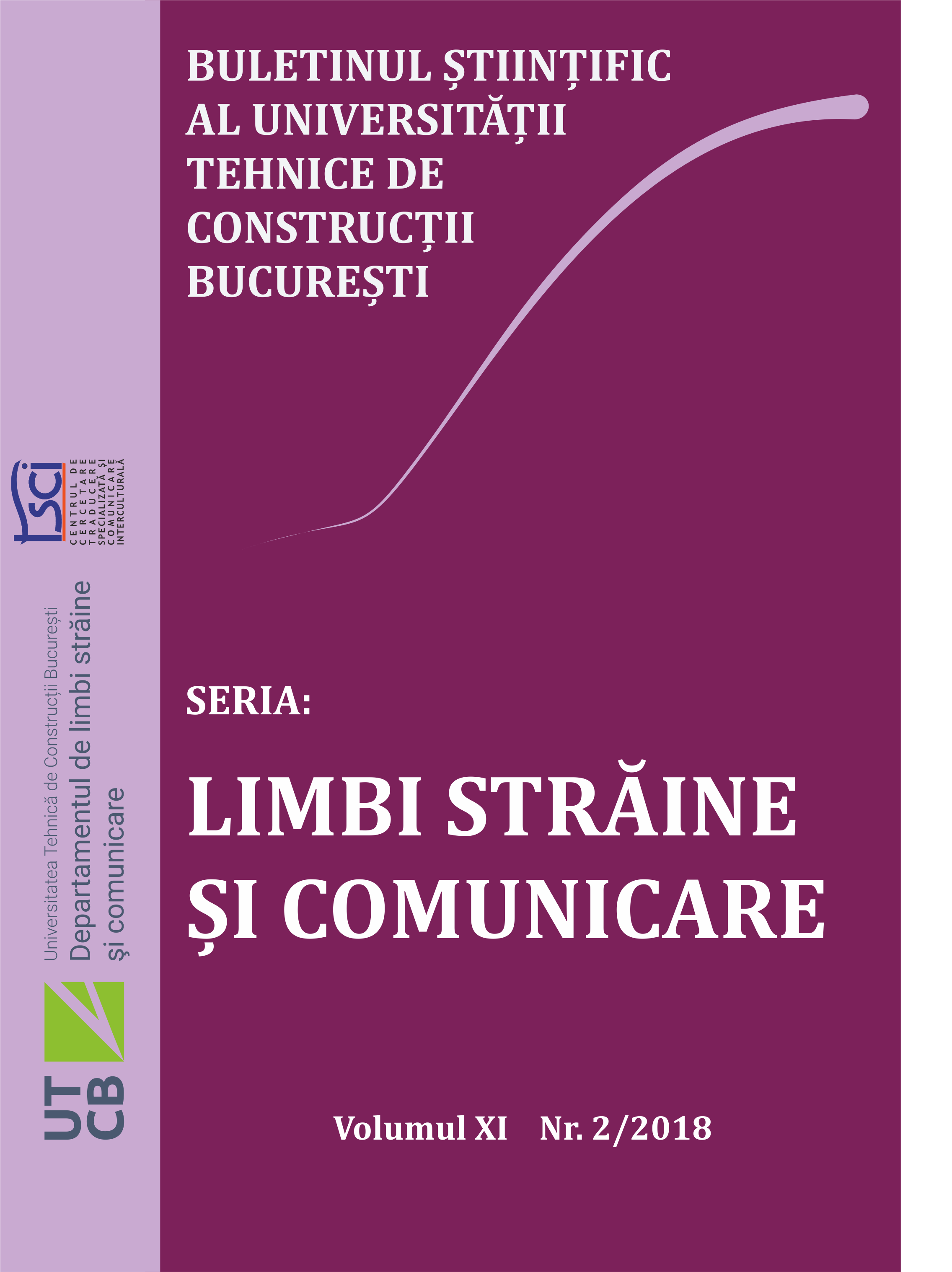
The following article discusses particular problems concerning the acceptability of a category of statements regarding fictional literature, i.e. those comprising fictional terms. Some theoretical prerequisites of an established institutional literary scholarly treatment of fictional literature are outlined. It is pointed out that this theoretical background allows the distinction between acceptable and not acceptable statements in consideration of fictional literature. It is argued that, given this theoretical framework, the use of expressions mentioning fictive characters that occur in literary texts and referring to fictional structures should be considered acceptable. The use of expressions referring to fictive characters should not be considered acceptable. “Fictional” is used in this article when meaning
More...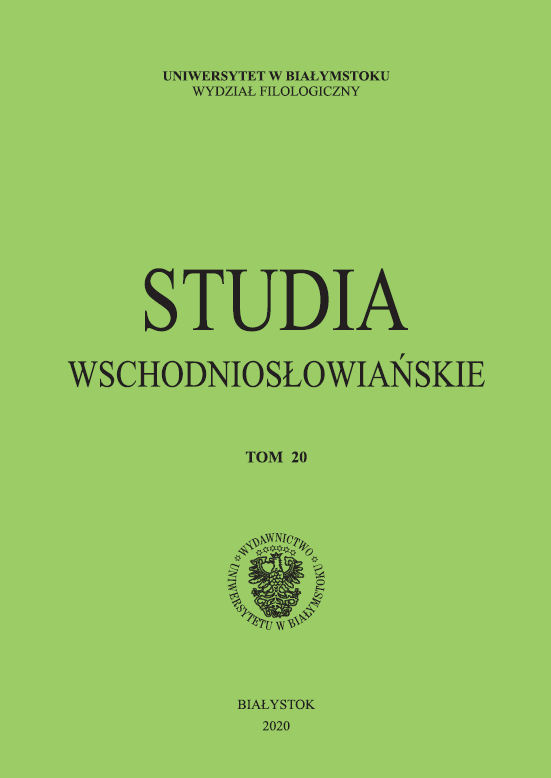
In this paper, dance is considered as an element of the artistic structure of dramatic works of Russian, Belarusian and Polish authors of the 1990s–2010s. It was revealed that this element represents the level of the chronotope: it becomes one of its expressive modes (creating an atmosphere due to emotional «charge»), manifests itself as a «non-everyday form of behavior» of a character (J. Faryno), as a «spatial motive» (O. Bagdasaryan) as a sense-forming centre of the artistic universe. A comparative analysis of the plays written by Russian, Belarusian and Polish playwrights of the indicated period showed that in Russian drama the transition occured from the dance – a «spatial motive» to the dance – a semantic center representing author’s model of the world and a Nietzschean man in the terms of a spontaneous, unstable world order. That was caused by the strengthening of the performative and receptive potential of modern drama. At the same time, in the Belarusian drama, due to more strong genetic ties with folklore, the dance for a long time has been manifesting itself as a game form of non-everyday behavior, however, since the mid-1990s it is often introduced as a «spatial motive» representing the extremely deformed consciousness of characters. If it comes to Polish drama, despite the actualization of the dance in the significant for its development works, in the latest plays it rarely functions as a semantic center, because of political and social themes predomination. The authors of this paper made an attempt to clarify the reasons for differents of the dance in the Russian, Belarusian, Polish drama of the 1990s–2010s, based on sociocultural factors, as well as on the logic of the development of the literary proces.
More...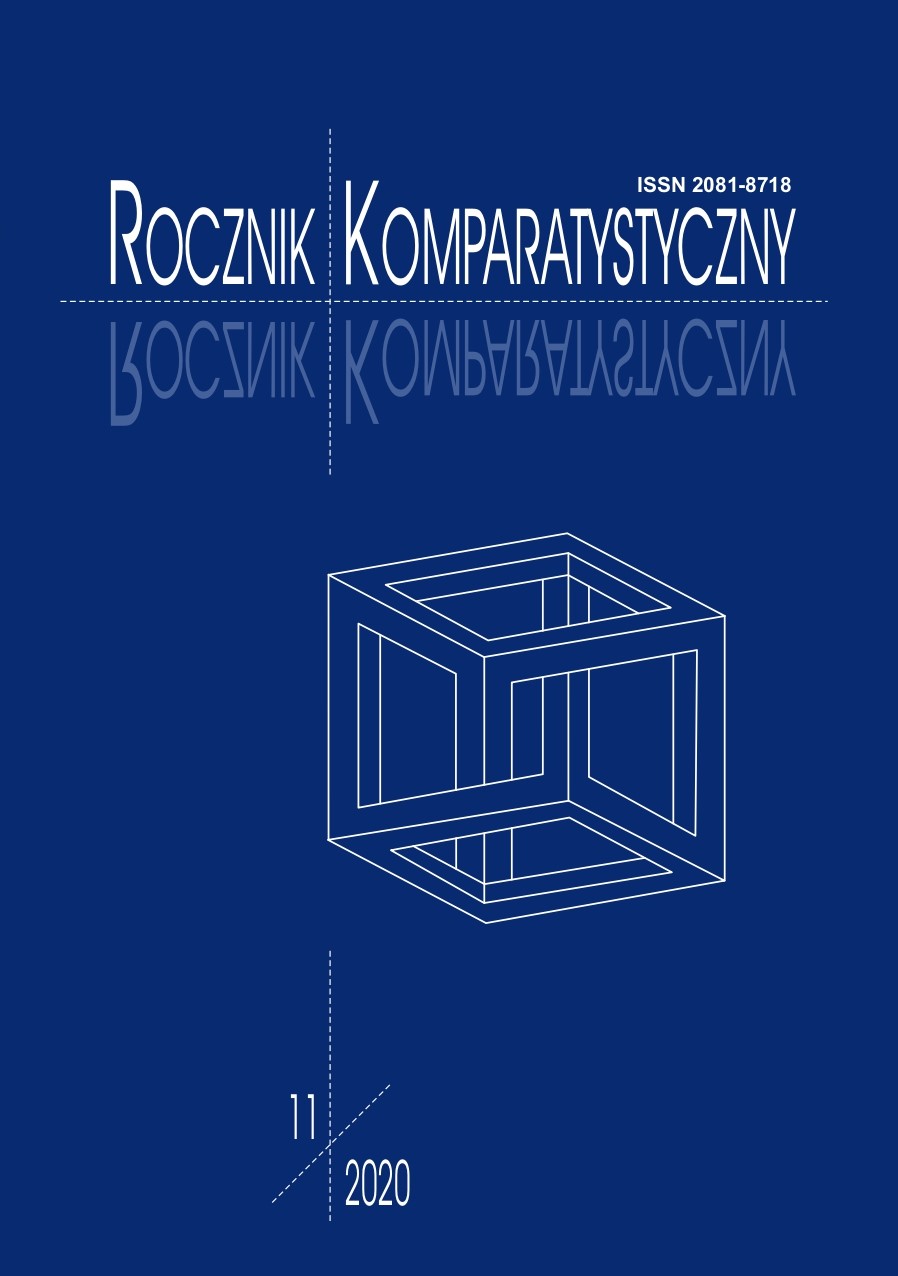
The article is devoted to intertextuality in the nineteenth-century dramatic texts inspired by other literary forms. The group of melodramas rewritten from texts of various literary genres includes works both secondary and literally impoverished, as well as some that are interesting, even innovative. In the practice of rewriting, the main plot of the original is retained only in its general outlines. The omissions, rearrangements, and simplifications often associated with a complete change in the sense of the prototype seem to be particularly interesting; although inspirations from sentimentalism are extremely important. The melodramas in question retain a link with the original work expressed not only by the choice of title but also by enriching them with content that did not exist before. This seems to be an effort to crystallize their own creative identity, often falling within the realm of popular culture.
More...
The article touches upon new threads as regards the Polish reception of J.J. Rousseau’s melodrama Pygmalion so as to settle a few debatable issues. For that purpose, the author ventures to study a broader array of source texts: apart from the well-known translation by T.K. Węgierski, J. Baudouin’s prose rendering and the French edition of the work published by Piotr Dufour are also discussed. This allows both for the formulation of a number of hypotheses on the influence of particular French editions on the translated versions of Rousseau’s work (e.g. making redundant a number of stage directions, planning to create a prospective bilingual edition) and ascertaining the exact sources of Węgierski’s adaptation; a difficult task, given the traditional dichotomy between the original and its translation. Approaching the translation as but a hub on the way towards the target text seems promising though, the more so that such an approach has already been tested with regard to the French culture. Considering the above, Rousseau’s Pygmalion should not be viewed merely as a source text, but rather a textual archetype evolving in course of its reception, both in France and in Europe.
More...
This paper focuses on the melodramatic features in Almayer’s Folly, the first part of The Malay Trilogy by Joseph Conrad, and their significance for the interpretation of the novel. The poetics of melodrama and opera is reflected in various aspects of Conrad’s prose, such as e.g. main plot construction, references to Verdi, characterisation of the protagonists. The melodrama and opera provide an important cultural frame of reference, which affects the narrative scope of the novel discussed.
More...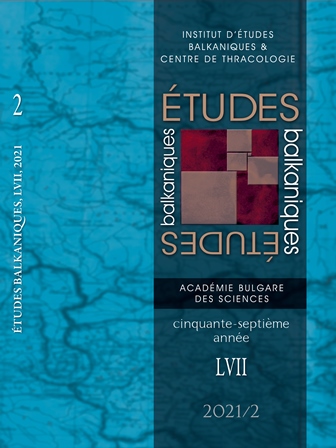
Lubomir Guentchev’s work holds a special place in Bulgarian literature and in 20th century French-speaking European literature. This author was born on November 26, 1907 in Pazardzhik, Bulgaria. He died on August 28, 1981 in Plovdiv. He has always lived in Bulgaria. He has never been to France. Yet he left a work written in a remarkable French language. He also wrote in Bulgarian. In total, in several stages, a collection of seventy-six manuscripts, left in French and Bulgarian by Lubomir Guentchev, was found between 1999 and 2005, whose proofing was completed in 2020. Ten volumes of his Écrits inédits (“Unpublished Writings”) have been published in France since 2003. How does this unique work appear? How were these manuscripts analyzed? What finds have been made? What about the translations, poetic creations and lyrical dramas those constitute the material?
More...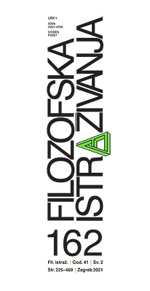
Hegel’s viewpoint on Greek tragedy is a valuable way-station in any theoretical as well as practical consideration of dramatic play. Hegel considered Greek tragedy from the perspective of his dialectical system, thereby indirectly influencing dramaturgical practice in the 19th and 20th centuries. This is why the paper explores Sophocle’s tragedy Oedipus Rex from the viewpoint of Hegel’s theoretical perspective, as well as practical perspectives based on an influential textbook on playwriting by Lajos Egri. The paper further explores the different understandings of dialectics in philosophical and dramatic dialogue. Also, it addresses the kind of applied dialecticism in the work of Greek artists of the 5th century BC. Finally, the text explores the early Greek literary form gnome, which is – hypothetically speaking – the source of the later Greek understanding of dialectics.
More...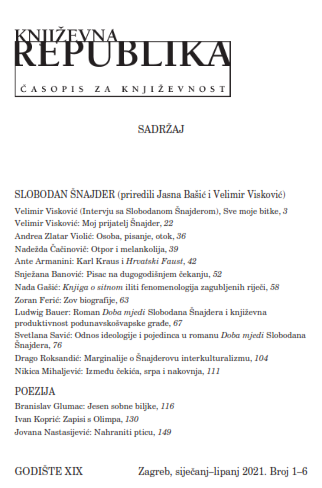
Jesen je 1969. godine, tek sam došao na studij iz Splita u Zagreb; pasionirano obilazim zagrebačka kazališta, najčešće sam jer nitko od mojih prijatelja, koje tih dana upoznajem, ne može podnijeti toliku količinu teatra u tako kratkom vremenu. U Zagrebačkome dramskom, koje se još ne zove po Gavelli, gledam Minigolf, čitao sam već o mladom autoru te drame u novinama, znam da je samo tri godine stariji od mene, bio je jedan od glavnih zagrebačkih šezdesetosmaša, iako tek dvadesetogodišnjak; u Minigolfu bavi se zbivanjima u jednom omladinskom listu šezdesetih godina (na način koji dosta podsjeća na »predigru « Krležina Vučjaka, koja se odigrava u redakciji novina Narodna sloga, neposredno nakon 1. svjetskog rata).
More...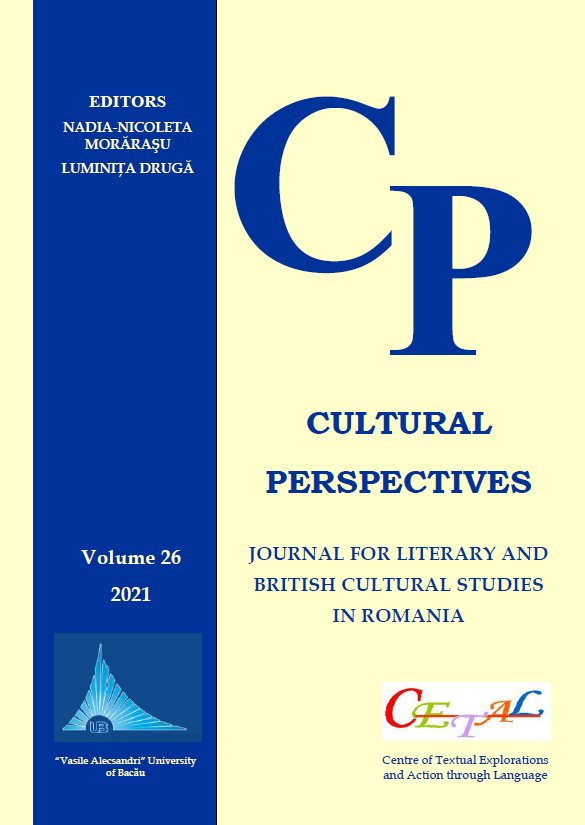
The essay focuses on the end-life crisis in two plays by Edward Albee, The Sandbox (1960) and The American Dream (1961) and investigates the contexts of this crisis through the figure of Grandma and her means of encountering age and death. I will use age studies and the close reading of the two dramas in order to see the ways in which Albee’s senior citizens challenge mainstream constructions of aging by reconnecting with their pasts in various ways on their deathbeds. They build up an idiosyncratic “age autobiography” (to use Margaret Morgenroth Gullette’s term) in an inventory of events and feelings by assessing a complete(d) life. By doing so they achieve an “agewise” (Gulette) identity that comes full circle in the very moment of grace.
More...
Translation is a human activity and like all human activities, it has its difficulties and satisfactions. With the aim to enlighten some theories regarding the translations, we are going to explore the studies of the theorists Anca Greere (2003), Hans J. Vermeer (2000) and Christiane Nord (1997). By examining the above theories, our goal is to obtain a clearer view upon the difficulties encountered in the translating activity, on the one hand and on the other, to find the proper way to surpass these difficulties. The translator as a professional has to take into account different aspects in order to comply with the translation task. Thus, the translator has to consider aspects related to the analysis of the source text, this constituting a source of information. On the other hand, the translator has to consider aspects regarding the text type, the text production and the recipient of the target text. In addition to presenting theoretical considerations on functional approaches, the applicative part of our paper will bring to attention four types of translation mistakes, which any translator should avoid and some viable solutions to the problems they pose.
More...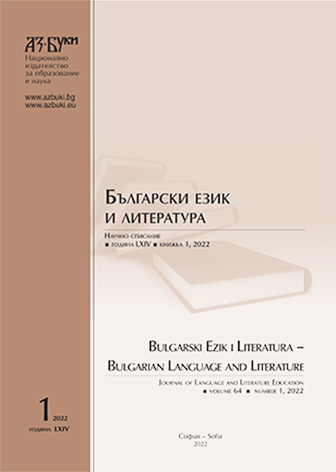
The text offers a review of the 9th edition of the Sofia International Literary Festival which took place in December 2021, trying to discover the conceptual threads that determine its structure and contents. It describes the meetings and the conversations with the participants at the festival, as well as the subjects of the discussions which were aimed to analyse some significant phenomena from the present days and also the perspectives they develop for all of us.
More...